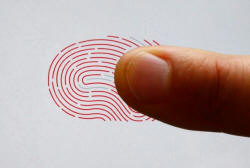|
The Swedish company, which makes fingerprint sensors used to
unlock smartphones, has suffered from industry-wide over-supply.
Now, larger clients are switching to back-mounted sensors that
sell for less than those activated by touching the Home button.
FPC said average selling prices for sensors have fallen by
around 30 percent, versus a previous forecast of more than 20
percent. It said the industry had also turned more cautious
ahead of Apple's iPhone X launch last week, dampening demand.
"Fingerprints is currently experiencing a cautious market and
one contributing factor is Apple's launch," FPC said in a
statement on Monday. It also blamed a weaker U.S. dollar.
The company now sees third-quarter revenue of between 800
million and 840 million Swedish crowns ($100-105 million),
compared to 823 million crowns in the second.
Analysts were previously expecting revenue of almost 1.5 billion
crowns, Thomson Reuters Eikon data shows. It had warned on
profits three times since the end of 2016 and abandoned giving
revenue forecasts.
Apple's iPhone X includes hardware for facial recognition
instead of a fingerprint sensor to unlock the phone. Some
analysts say this is bad news for Fingerprint Cards, though
others believe it is too early to tell.
The company makes fingerprint and iris detection technology, but
not facial recognition.
Chief Executive Christian Fredrikson told analysts and media on
Monday that it was too early to say if FPC would lose market
share because of the iPhone X launch.
(Reporting by Olof Swahnberg and Helena Soderpalm; editing by
Jason Neely and Tom Pfeiffer)
[© 2017 Thomson Reuters. All rights
reserved.] Copyright 2017 Reuters. All rights reserved. This material may not be published,
broadcast, rewritten or redistributed.
 |
|




